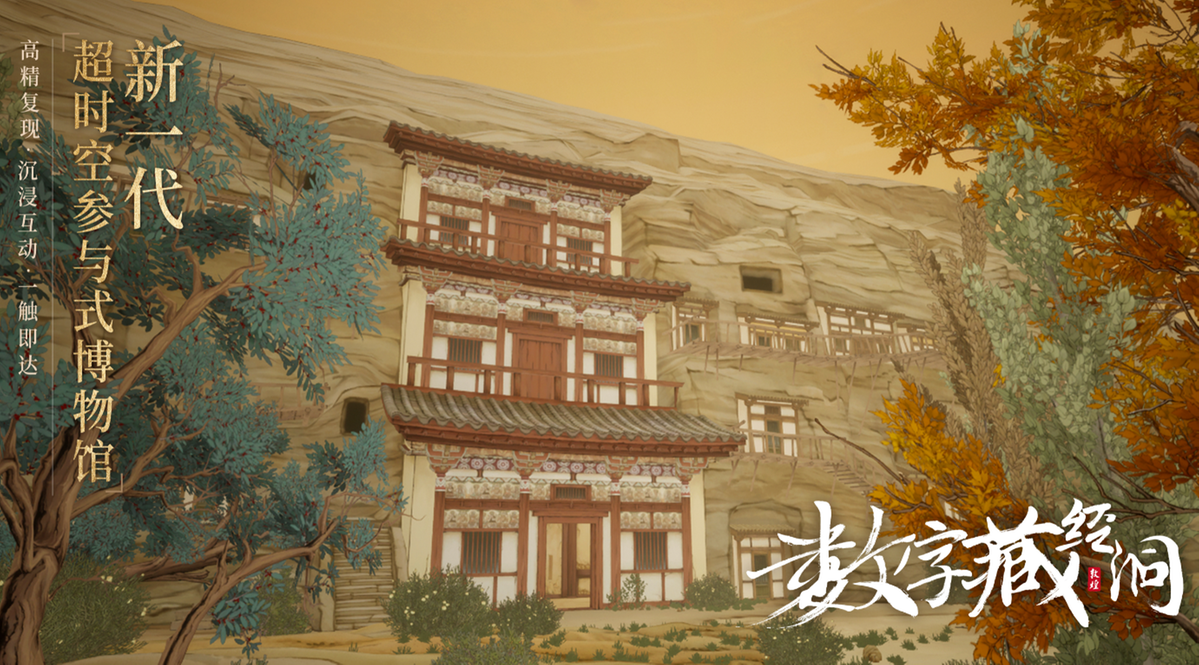

In June 2022, the Dunhuang Academy and Tencent established a joint laboratory to explore new technologies and modes of cultural heritage display through the application of digital technologies. The Digital Library Cave is one of the first projects to emerge from the lab.
Su Bomin, director of the Dunhuang Academy, said more efforts will be made to explore new ways of displaying cultural relics, offering the public more immersive cultural experiences to promote and develop the Dunhuang culture.
Such moves reflect a broader effort by China in recent years to beef up the protection of cultural relics, using digital technology as a new means of permanently preserving these intangible resources.
Another good example is an interactive digital platform of virtual oracle bone inscriptions that was made accessible to the public on Thursday.
The WeChat mini program named "Great Oracle Bones" uses digital technology to present a three-dimensional image of carved oracle bone inscriptions. By clicking on the scripts on the platform, users can immediately discover the corresponding modern Chinese characters and definitions.
"The mini program aims to enhance people's understanding of the oracle bone inscriptions and arouse their awareness of researching and protecting the early Chinese scripts," said Wang Chaoyang, chief digital architect of the sustainable social value division of Tencent, one of the developers of the platform.
Oracle bone inscriptions, or Jiaguwen, are an ancient Chinese script named after their inscriptions on tortoise shells and animal bones. They are a primitive form of Chinese character writing and the oldest fully-developed characters in China.
So far, about 150,000 pieces of oracle bone inscription have been discovered, of which more than 35,000 were excavated by archaeologists. Researchers have identified more than 4,000 characters and deciphered one-third of them.
"The oracle bone inscriptions that have not been discovered and decoded are all hard nuts to crack, and the booming artificial intelligence technologies can be beneficial to the interpretation of oracle bone scripts," said Guo Xudong, dean of oracle bone scripts research institute of Anyang Normal University.